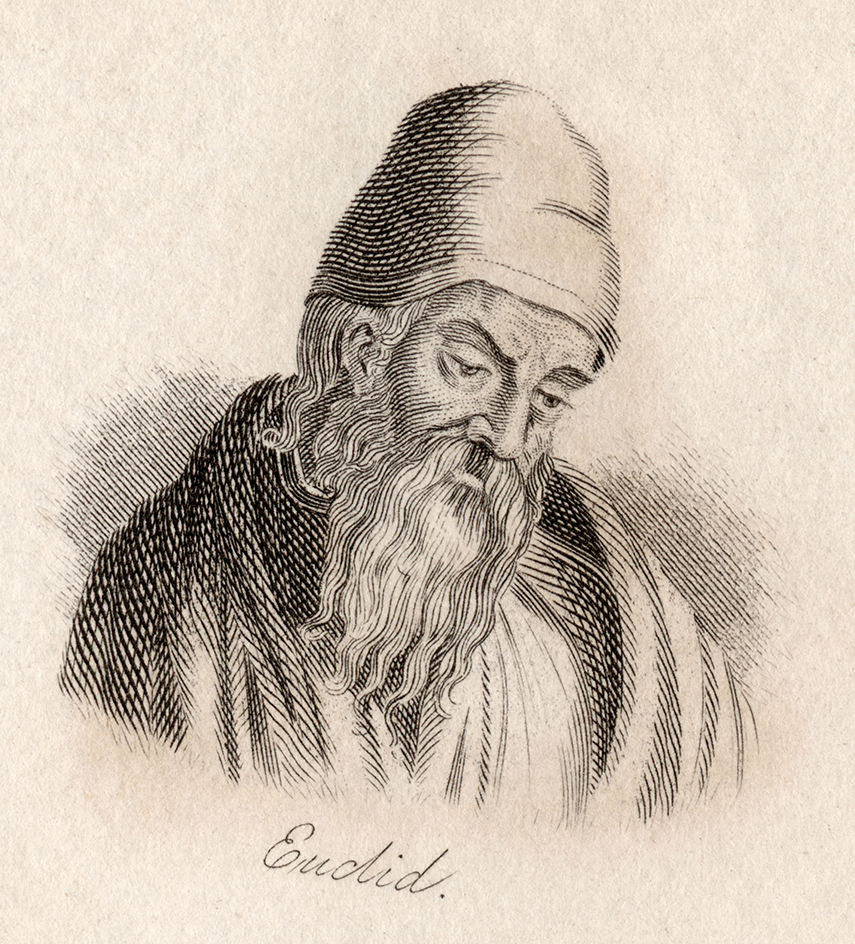Euclid << YOO klihd >> (330?-270? B.C.), a Greek mathematician, is often called the father of geometry. He compiled, systematically arranged, and wrote portions of the mathematics textbook Elements. Euclid began with accepted mathematical truths called axioms and postulates (see Axiom). From them, he logically demonstrated 467 propositions of plane and solid geometry.

Euclid’s textbook has probably had a greater influence on scientific thinking than any other work. It includes the parallel postulate and a well-known proof of the Pythagorean theorem (see Geometry; Pythagorean theorem).
Euclid wrote on most branches of mathematics that were known in his time. But only a few of his other writings have survived. They include works on conic sections, perspective, and pitfalls in geometry.
Very little is known about Euclid’s life. The place and date of his birth are uncertain, though it is known that he taught mathematics at the Museum, an institute in Alexandria, Egypt. Euclid probably studied in Athens and came to Alexandria shortly after 300 B.C. at the invitation of the Egyptian ruler Ptolemy I. According to the Greek philosopher Proclus, when Ptolemy I asked if there was a shorter way to the study of geometry than the Elements, Euclid told the king that “there is no royal road to geometry.”
